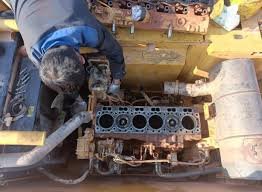Introduction
In the construction and civil engineering industries, excavators are indispensable heavy machinery. Fuel efficiency directly impacts operating costs and project profits. Low fuel efficiency not only increases expenses but also burdens the environment. In this article, I will explore the common reasons for low excavator fuel efficiency and provide practical solutions to help businesses optimize fuel use and enhance economic benefits.
1. Understanding Excavator Fuel Efficiency
1.1 Definition of Excavator Fuel Efficiency
Excavator fuel efficiency refers to the relationship between the amount of fuel consumed while completing specific tasks and the amount of work accomplished. It is typically measured in “liters/hour” or “liters/cubic meter of earth moved.”
1.2 Importance of High Fuel Efficiency
Improving the fuel efficiency of excavators can significantly lower construction costs while reducing greenhouse gas emissions, aligning with sustainable development goals. For contractors, high fuel efficiency is also a vital competitive edge.
2. Common Reasons for Low Excavator Fuel Efficiency
2.1 Poor Maintenance
Irregular maintenance can lead to decreased excavator performance. Common issues include:
- Dirty Filters: Clogged air and fuel filters restrict airflow and fuel flow, reducing combustion efficiency.
- Worn Parts: Worn hydraulic system components can affect the excavator’s working efficiency and fuel consumption.
2.2 Improper Operation
The skills of the operator directly influence excavator fuel efficiency. Incorrect operating methods include:
- Excessive Acceleration or Sudden Stops: This leads to unnecessary fuel consumption.
- Inefficient Work Methods: Such as frequent digging and lifting actions.
2.3 Poor Load Management
Overloading or uneven loading increases the working pressure on the excavator, leading to higher fuel consumption. Proper load management ensures that the equipment operates within its design load range, significantly improving fuel efficiency.
2.4 Use of Low-Quality Fuel
Low-quality fuel may contain impurities that affect combustion efficiency, causing the engine to operate improperly. Using high-quality fuel that meets standards helps maintain the excavator’s optimal performance.
2.5 Hydraulic System Issues
The hydraulic system is a crucial component of the excavator, and its efficiency directly impacts fuel consumption. Common problems include:
- Contaminated Hydraulic Oil: This can reduce system efficiency and increase fuel consumption.
- Hydraulic Line Leaks: This not only wastes fuel but can also lead to system damage.
2.6 Design and Configuration Issues
The design and configuration of the excavator significantly affect its fuel efficiency. For example, improperly configured attachments may add extra load, leading to increased fuel consumption.

3. Strategies to Improve Excavator Fuel Efficiency
3.1 Regular Maintenance Checks
I emphasize the importance of developing and strictly following a maintenance plan to ensure the excavator is in optimal working condition. Checkup items include:
- Regularly replacing and cleaning air and fuel filters.
- Inspecting and replacing worn hydraulic components.
3.2 Enhancing Operating Skills
Providing training for operators is essential to help them master efficient operating techniques. Training should include:
- Fuel-saving driving techniques, such as smooth acceleration and proper use of the hydraulic system.
- Optimizing load management and work methods.
3.3 Choosing the Right Fuel
It’s crucial to ensure that high-quality fuel meeting standards is used to avoid the negative effects of low-quality fuel on engine performance. Regularly checking fuel storage and use prevents contamination.
3.4 Optimizing Work Processes
I recommend carefully scheduling construction plans and work processes to minimize unnecessary movements and waiting times, thereby improving overall operational efficiency and reducing fuel consumption.

4. Conclusion
Understanding the common reasons for low excavator fuel efficiency helps businesses take effective measures for improvement. By implementing maintenance strategies, enhancing operational skills, and optimizing work processes, companies can significantly improve excavator fuel efficiency, reduce operating costs, and promote sustainable development.
5. Frequently Asked Questions (FAQ)
5.1 What are the signs of low excavator fuel efficiency?
- Abnormal increases in fuel consumption.
- Unusual engine sounds during operation.
- Delayed hydraulic system response.
5.2 How often should I conduct maintenance checks?
- A basic check every 500 hours.
- Adjust the frequency based on equipment usage and work environment.
5.3 Can fuel additives improve excavator fuel efficiency?
- Certain high-quality fuel additives can clean the fuel system, enhance combustion efficiency, and improve fuel efficiency.



